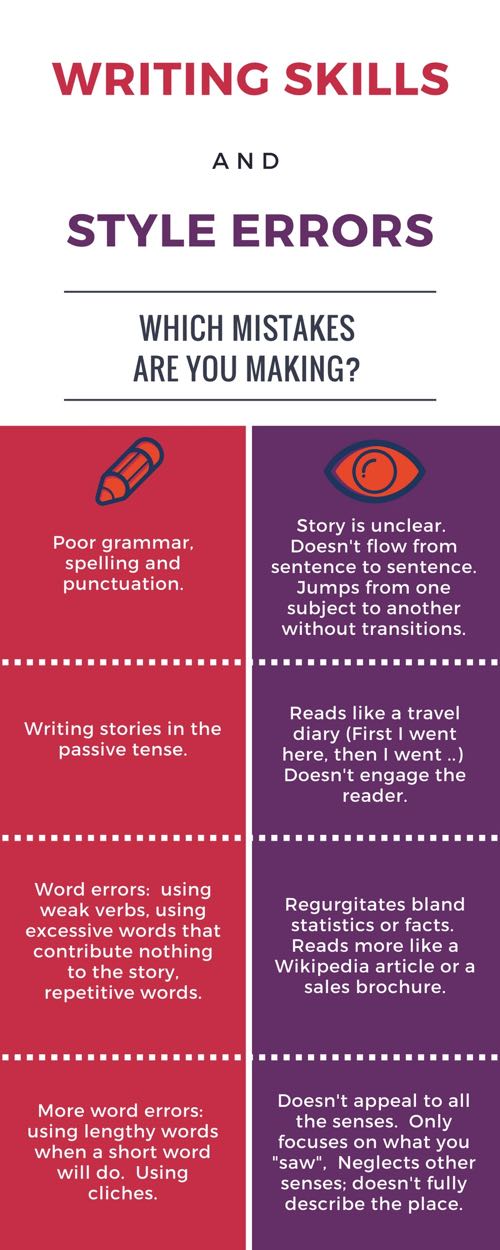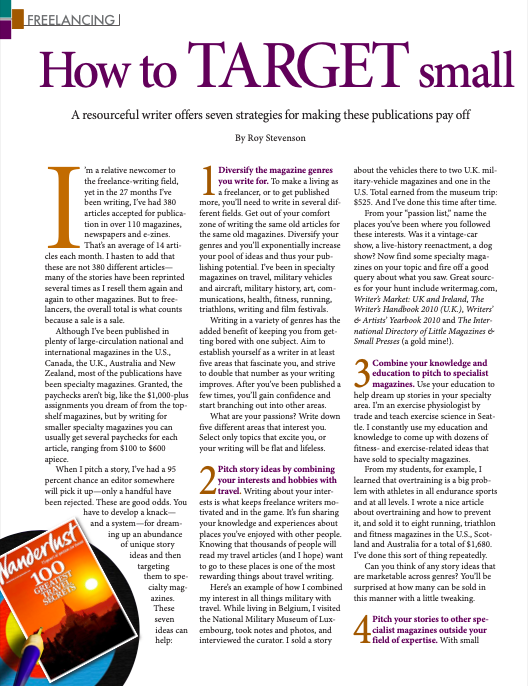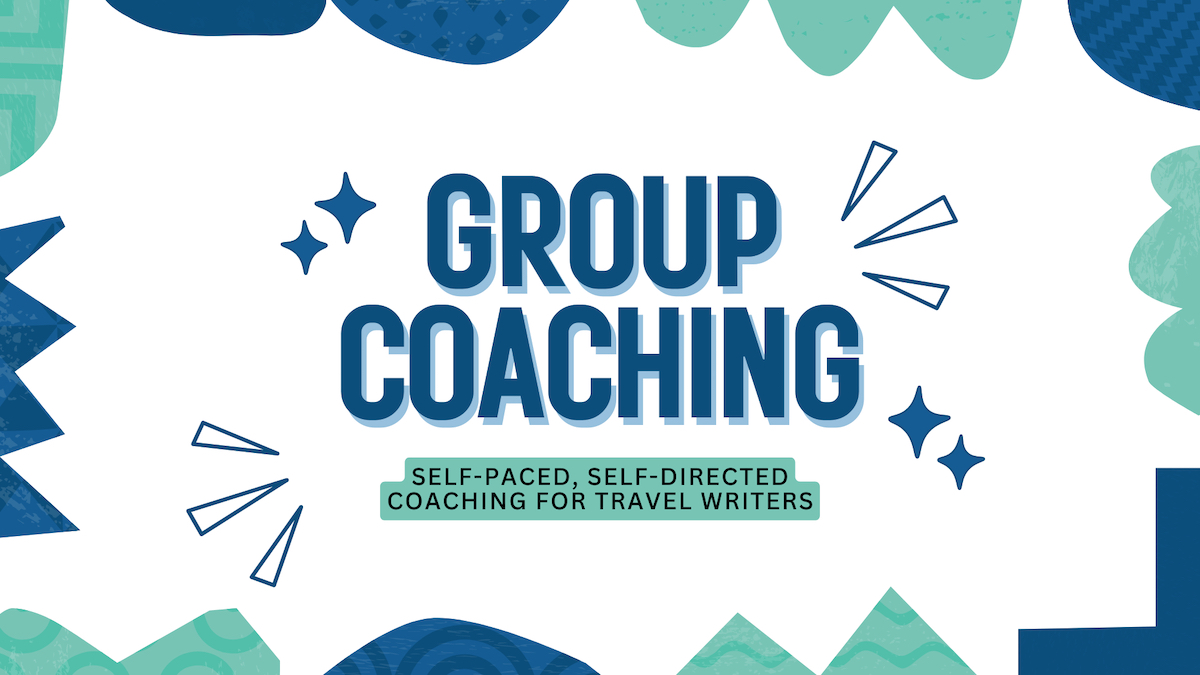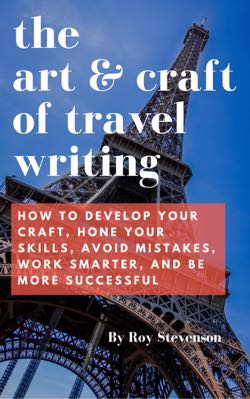- Home
- Travel Writing Craft Resources
- Why Practice Makes Perfect is Bad Advice
"Practice Makes Perfect"
is Terrible Advice
For Travel Writing
(and Everything Else)
By Roy Stevenson
“Practice makes perfect”. Everyone says this and it's accepted as the ultimate truth. This idiom is touted as the key to success in everything from sports performance to travel journalism.
The problem is, it’s terrible advice!
The premise is the more we do something, the better we get at doing it. On the surface, this seems to make sense.
But there's one huge loophole in this argument: if you do something the wrong way from the start, it doesn’t matter how many times you practice it. It will still be wrong!
What does this mean for travel writers? Here’s an example. Poor travel writing is riddled with cliches. If you get into the habit of using cliches, it’s hard to break out of it. Yet how many travel articles have you read with dozens of cliches? I know I’ve read a lot - especially on the internet.
So “practice makes perfect” is a hazard for travel writing and any other thing we do, when you’re not doing it right to begin with. As Yoda says, "you must unlearn what you have learned."
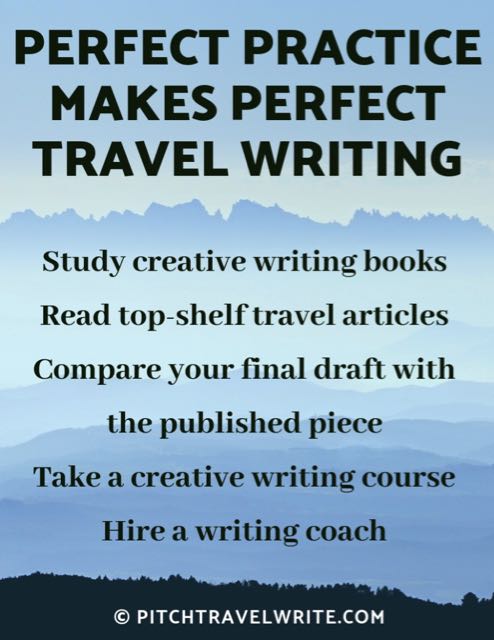
Make Your Writing Publishable
For travel writers, if your basic spelling, grammar and punctuation are poor, doing lots and lots of writing will not improve these fundamental skills. You need feedback to help you improve these basic writing skills. There are lots of tools to help you improve your writing.
The same principle applies to your overall writing style and technique, also known as your ‘voice’. Without personal feedback, you’re doomed to keep writing the same old way and you’ll keep making the same old mistakes. Your unpolished writing will scream “amateur” to magazine editors when they read your query letters and articles.
Now let me dispel a myth: it’s not the magazine editor’s job to tidy up your travel writing! If you are expecting the editor to clean up your work, you need to unlearn this. What you need to practice instead is submitting clean, error-free copy to your editors.

To develop your voice, you'll need a little instructive feedback. Without it your articles will sound superficial. You want your stories to flow smoothly.You
also need to know how to paint a clear picture of your destination in
the reader’s imagination. Your writing needs to take the reader there.
Feedback is useful while you're learning this skill.
There are many poor travel writing examples out there - especially online. Don’t let poor examples mislead you into thinking that writing proficiency doesn’t matter. It matters a great deal!
Here
are eight of the most common travel writing errors I see. Which ones
have you already mastered? Which ones still need work? Read your own
articles to see what issues you can find and then take steps to correct them.
Good travel writing reads smoothly and easily. It keeps you reading right up to the final sentence because you want to see how it ends. In short, good travel writing is polished, entertaining, easy to read and clearly presented.
Perfect Practice Makes Perfect Travel Writing
Only when you learn how to do something correctly, and then practice it multiple times, will your travel writing approach perfection. So I'd like to re-phrase the idiom for writers as: "Perfect practice makes perfect travel writing".
If you’re a new travel writer, or a travel writer wanting to move to the next level, you need direct feedback. Bear in mind that feedback is a repetitive process. When I coach my clients, for example, I use a “feedback loop”. I give my clients feedback on their query letter or manuscript and then they rewrite them. If necessary, I'll recommend further changes until they're ready to submit to editors.
Of course, you can also choose to ignore the feedback and continue to write poorly. This is a situation where practice makes perfect results in failures. You won’t have much success selling your articles to editors.
To improve your creative travel writing skills, here are five tips - and I suggest you use them all!
1. "Perfect Practice Make Perfect Writing" with Self Study: Read Creative Writing Books
Buying books about the art and craft of creative writing (and then reading them!) will certainly help novice travel writers and bloggers improve their work.
When you use this Do-It-Yourself approach, you must be motivated and disciplined enough to follow through. Spend time every day reading the books you purchased. Even if you only spend a half hour each day reading, you will learn how to improve.
Of course, you also need to apply what you learned when you sit down to write! Here are four books that can help you improve your writing.
2. "Perfect Practice Makes Perfect Writing" by Reading Top Shelf Travel Articles
Another way to improve your writing is by reading good travel writing. You can really amp up your craft by reading travel articles in respected, top shelf travel magazines.
For this to be effective, read the articles actively and critically. Study the stories for style, voice, and flow.
Actively note specific examples and techniques the writer used to make her story effective. Then try out some of these techniques when you sit down to write.
Over the years I’ve read thousands of travel blogs and noticed one commonality between the best blogs — they’re all well written. The best travel bloggers are no different than print travel writers. They use the same creative writing techniques found in print publications.
Readers prefer well-written articles, whether they’re reading online or in print.
I get that travel blogs are often shorter than what you might find in print. But they read so much better when they’re comprehensible. A short, effective five-hundred-word blog will still captivate your readers if it’s well written.
3. "Perfect Practice Makes Perfect Writing" by Comparing Your Original Manuscript With the Published Article
Another powerful way I get feedback is by reviewing my articles after they’ve been published in print magazines. I’ll place my original manuscript on the left side of my computer screen and a PDF of my published article on the right side of the screen. I compare the two articles simultaneously, sentence-by-sentence, to see how the editor has changed my story.
I’ve gained tremendous feedback using this simple side-by-side comparison technique. This is essentially a free coaching session with your editor. I’ve seen how editors make my story ‘tight’ by eliminating unnecessary words, or even whole sentences. Sometimes editors will exchange one word for another simpler or more appropriate word.
One of the major ways I improved my travel writing when I was new at the game was through these side-by-side comparisons. Seeing how editors swapped some of my paragraphs around to make the story flow better and to give it a ‘punchier’ start was enlightening.
During my first few years in the freelance writing game, I had a tendency to lead off my story (called a ‘lede’) with a bland statement, followed by a much juicier and more descriptive paragraph. I noticed that frequently, editors would swap my first two paragraphs around so that my highly descriptive second paragraph was promoted to the lede, and my original paragraph was inserted further down the article.
Even today, I still occasionally lead off with a mundane paragraph, but now that I’m aware of this tendency, I often promote a more exciting paragraph from further down my article up to the lede. I usually do this when I’ve finished my story and am polishing it. Here's an article about my favorite ledes with some examples so you can use them, too.
4. "Perfect Practice Makes Perfect Writing" by Taking a Class in Creative Writing
If your writing skills are inadequate, but you still want to break into travel writing, find a creative writing class at a local university or community college. You can find classes for everything from basic spelling, grammar, and punctuation, to writing creatively.
If you don’t have a local college or university program, there are some good online programs. Nick O’Connell offers such programs online and gives feedback to writers as part of his classes.
But, no matter what course you take, make sure personal feedback is part of the curriculum.
5. "Perfect Practice Makes Perfect Writing" by Hiring a writing coach and getting feedback
The self-improvement techniques I’ve outlined above will help you improve your writing. But hiring a writing coach and mentor stands out head-and-shoulders above all other methods.
In this marvelous digital era of email and Skype, a writing coach will give you precisely the advice you need to improve.
I’m not referring to lame packaged programs where you pay exorbitant sums of money for a series of canned online presentations, with a few sketchy handouts thrown in to sweeten the pot. Packaged programs do not provide you with what you need most: personalized feedback on your writing.
When I suggest hiring a writing coach, I’m referring to one-on-one coaching and mentoring. A coach provides individualized mentoring to move you forward rapidly to the next level.
A good writing coach will review your query letters and story manuscripts before you submit them to editors. A writing mentor will teach you techniques on writing style and help you develop your voice.
Practice makes perfect for travel writers requires a feedback loop. Hire a writing coach to improve your writing. Learn from the feedback. Try out the new techniques your coach recommends. Then look at the results, and repeat until you are proficient.
You’ll know when this happens. Your "perfect practice makes perfect writing" will produce more successful results when you query editors and write your articles.
More related posts that will interest you:
Your Travel Writing Craft Resource Page
Your Travel Writing Craft: 10 Ways to Write Like a Seasoned Professional
Seven Tips to Improve Your Writing Style

Roy Stevenson is a professional travel writer and the author of www.PitchTravelWrite.com. Over the past ten years, he’s had more than 1000 articles published in 200 magazines, trade and specialty journals, in-flights, on-boards, blogs and websites and has traveled on assignment around the U.S. and to dozens of international destinations.
IF YOU ENJOYED THIS POST, GET UPDATES. IT'S FREE.
